News
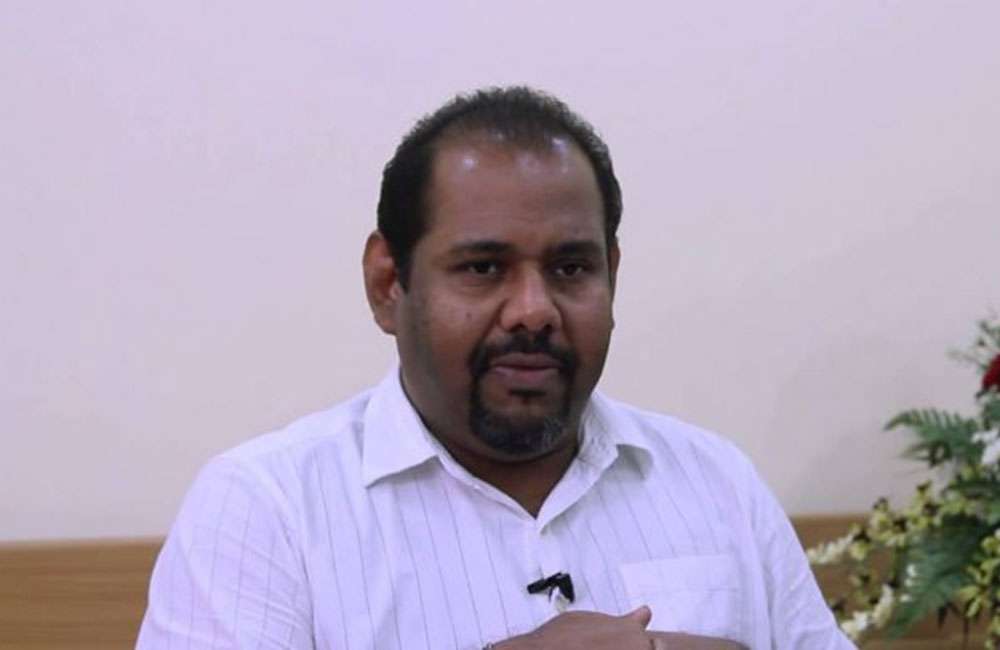
TNPF MP Ponnambalam issued travel ban
An overseas travel ban has been imposed on the Chairman of the Tamil National People’s Front (TNPF) MP Gajendrakumar Ponnambalam.
The Police Spokesman stated that the travel ban was issued by the Kilinochchi Magistrate’s Court today.
Commenting on the matter, MP Gajendrakumar Ponnambalam stated that the Colpetty Police visited his house in Colombo today to serve written information to him in Sinhala.
“I refused to accept it as I can’t read or write Sinhala. They subsequently read it to me in Sinhala saying that all they needed to do was to inform me,” he said in a Twitter message.
The MP further stated that the Police had informed him that he is expected to produce himself at the Maruthenkerni Police station at 10.00 am on Thursday, 08th June 2023.
“The police have made an application to the Kilinochchi Magistrate to ban my foreign travel until I produce myself to the Maruthenkerni Police,” MP Gajendrakumar Ponnambalam said.
The MP added that the Magistrate has prohibited his foreign travel until a statement is made to the said Police station.
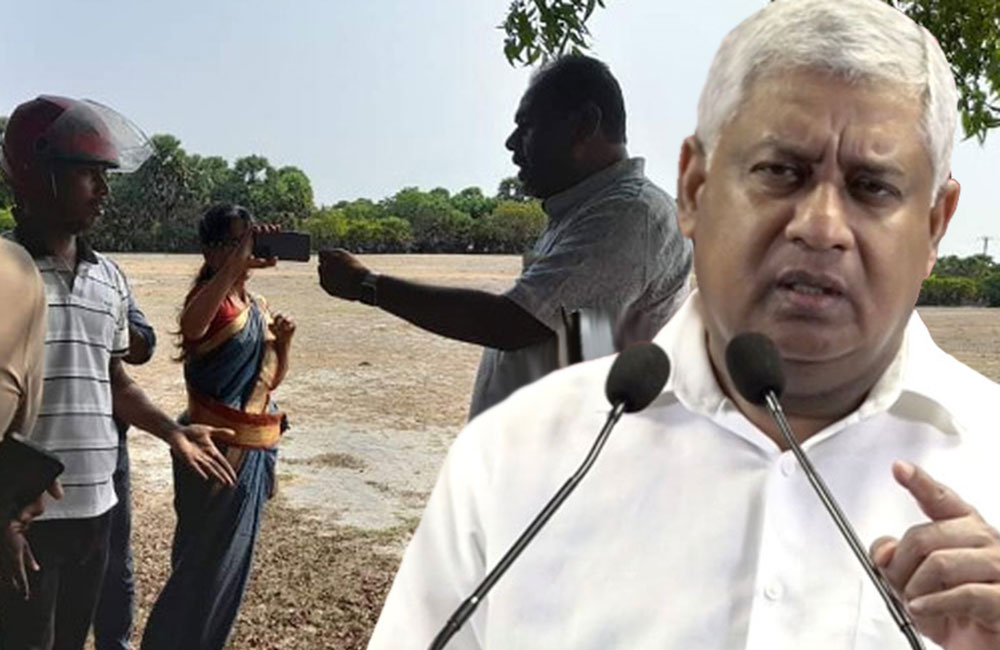
Tiran calls for report into incident involving TNPF leader & police
Public security minister Tiran Alles has called for a report into an incident involving TNPF leader Gajendra Kumar Ponnambalam and the police in Jaffna.
Submissions will be made to courts tomorrow (05) regarding the matter, said the ministry.
Ponnambalam has claimed that men claiming to be from a police investigation division threatened and attacked him as he was meeting people at Marudankerni on June 02.
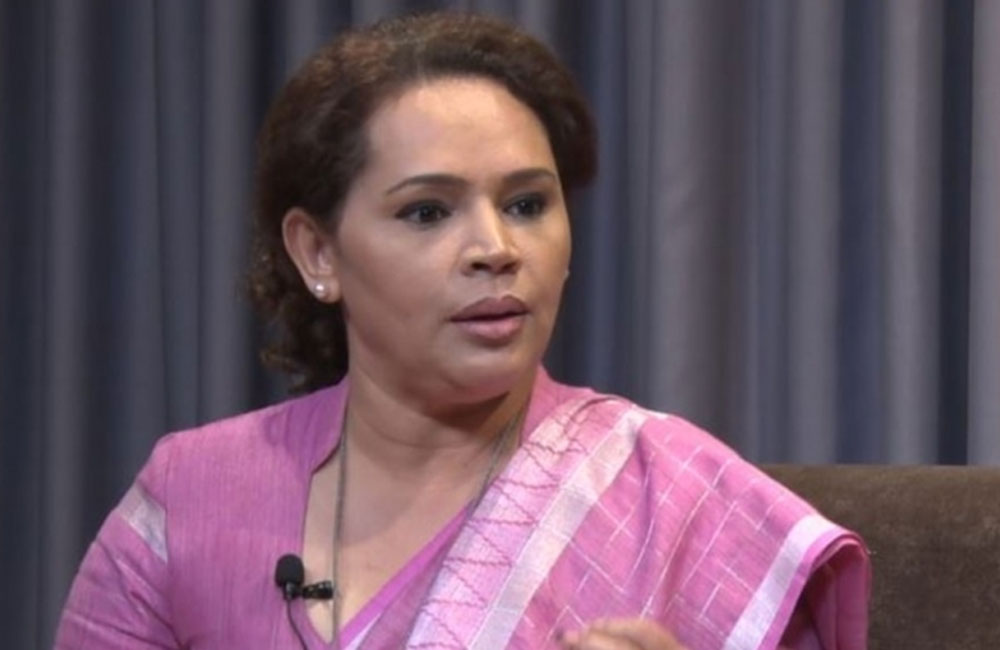
Diana Gamage citizenship case ruling postponed
The Court of Appeal has postponed to July 25 the delivering of its ruling in a writ petition filed against state minister of tourism Diana Gamage over her citizenship.
Filed by social activist Oshala Herath, the petition seeks an order declaring Gamage not qualified to be a member of parliament since she is a British citizen.
The judgment was due to be delivered today (6), but judges Nissanka Bandula Karunaratne and M.A.R. Marikkar announced the ruling would be delivered on July 25.
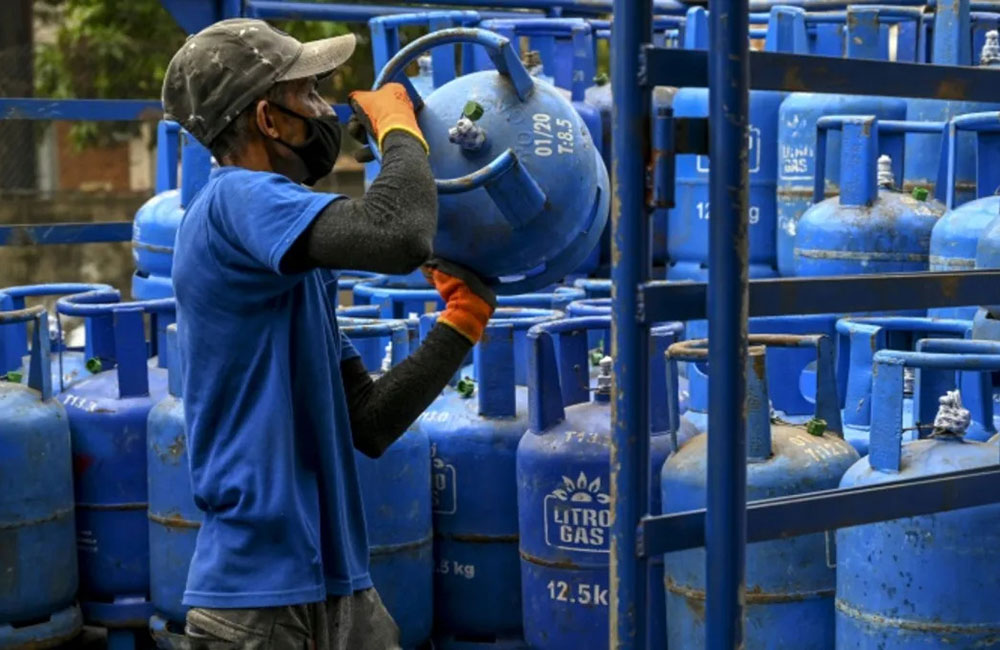
Litro prices to be reduced from Sunday (04) midnight
Litro Gas says that the price of domestic gas cylinders will be reduced from midnight tomorrow.
Its chairman Muditha Peiris says that the price of a 12.5 kg domestic gas cylinder will be reduced from more than Rs. 300.
Relatively, the prices of 5kg and 2.5kg cylinders will also be reduced.
The Chairman said that the official price revision notice will be released tomorrow (04).
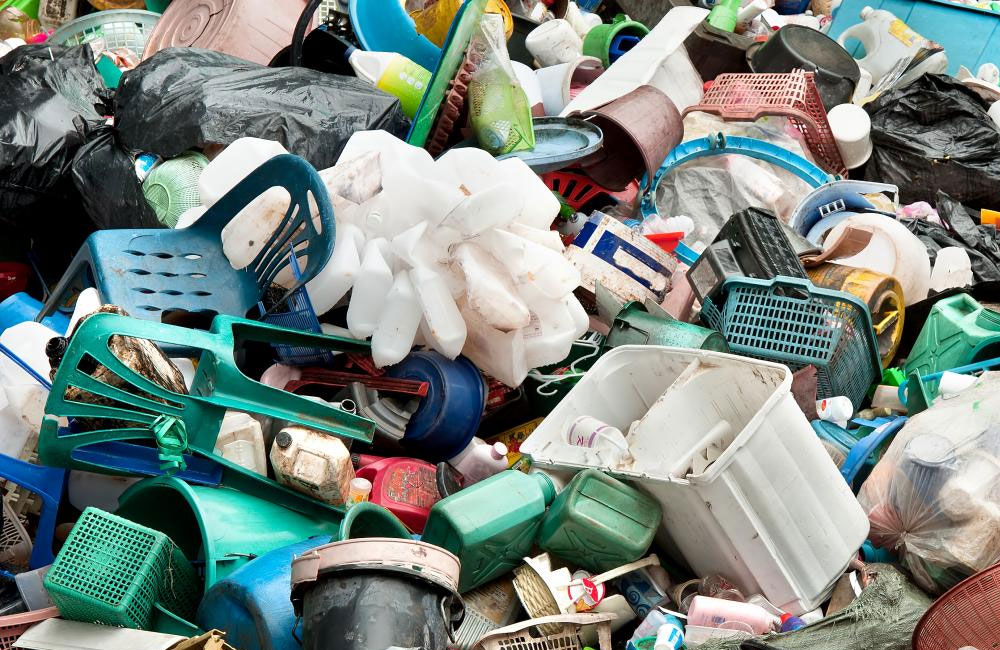
Only half of plastic-polythene waste gets collected, says CEA
Only half of the up to 950 tons of plastic and polythene waste disposed each day in Sri Lanka gets collected, out of which just 10 to 15 per cent are recycled, said chairman of the Central Environment Authority Supun S. Pathirage.
Recycling plants are in short-supply of adequate material due to the absence of a proper mechanism to collect polythene and plastic waste, he has told BBC Sinhala Service.
His remarks come in connection with World Environment Day that falls today (05).
The theme for the 50th World Environment Day is under the campaign of beating plastic pollution and ecosystem restoration.
The CEA is holding a series of events, with the main function taking place in Colombo Pettah this morning.
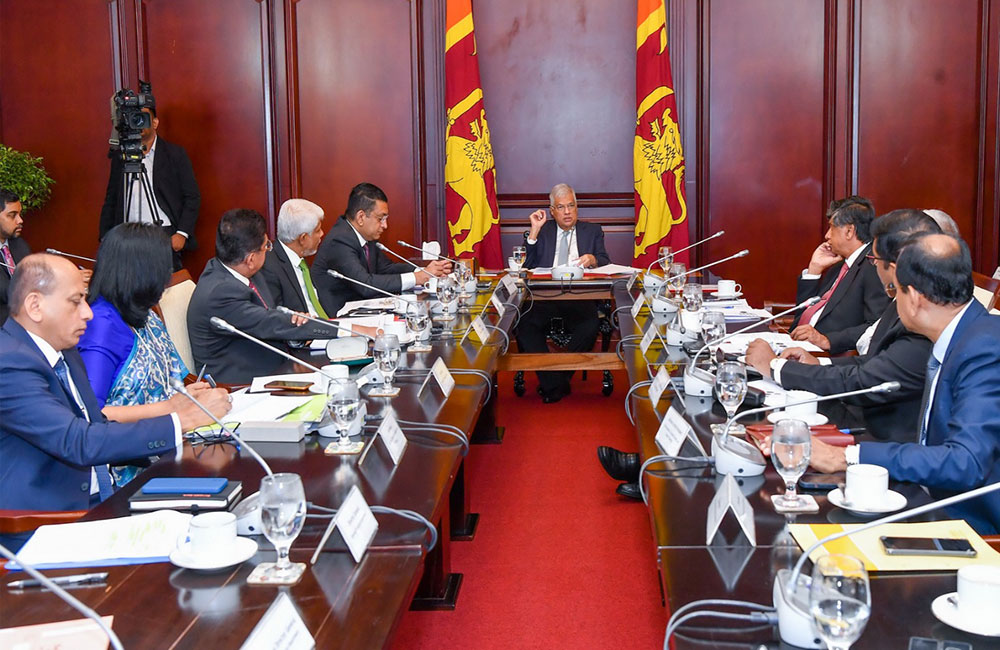
Steps afoot to launch Climate Change University next year
President Ranil Wickremesinghe says efforts are being taken to establish the Climate Change University next year.
He revealed this during a briefing held on climate change and green growth at the Presidential Secretariat today (June 02).
President Wickremesinghe, expressing his perspective on the International Climate Change University, emphasized that it is a post-graduate institution solely focused on research and does not offer undergraduate courses.
Any country or organization that contributes to the university becomes a stakeholder and gains membership on the Board of Governance. The Korean Exim Bank has expressed interest in partnering with the university.
President Wickremesinghe urged that all future research in the field of climate change should be conducted at this institution.
He added that prestigious institutions like Harvard and MIT have expressed interest in collaboration.
The president also requested the consideration of short-term courses for government officials.
During the briefing, the five thematic areas established in a previous meeting with President Wickremesinghe were extensively discussed. These areas include the Climate Change Office, Green Finance Facilitation, International Climate Change University, Nature Positive Green Growth, and Innovative Management Support. Specific attention was given to regions lagging behind in these areas, such as marine pollution and electric car mobility.
President Wickremesinghe instructed the authorities to address these concerns, while involving the private sector and international organizations in the efforts.

President appoints several new High Court Judges
President Ranil Wickremesinghe has handed over the Letters of Appointment to several new High Court Judges, the President’s Media Division (PMD) reported.
Accordingly, the District Judges T.J. Prabhakaran, P.K. Parana Gamage, Assistant Secretary General of Parliament Tikiri K. Jayathilaka and Senior State Counsel K.D.Y.M. Nayani Nirmala Kasthuriratne have been appointed as High Court Judges.

Number of inmates to receive special pardon in view of Poson Poya
President Ranil Wickremesinghe has decided to grant special state pardon to a number of prison inmates, in view of the Poson Full Moon Poya on Saturday (June 03).
The Prisons Department explained that this special pardon, which is subjected to several terms and conditions, is granted pursuant to the powers vested in the Head of State by the Constitution.
Accordingly, a 14-day pardon will be offered to the inmates who have spent one year or less in prison as of June 03.
Meanwhile, the remainder of the prison sentences of the inmates who are serving for non-payment of fines.
According to the Prisons Department, the inmates, who have been sentenced to 40 years or more in prison for non-payment of fines and other offences and have completed 20 years of their sentence, are to be granted this special pardon.
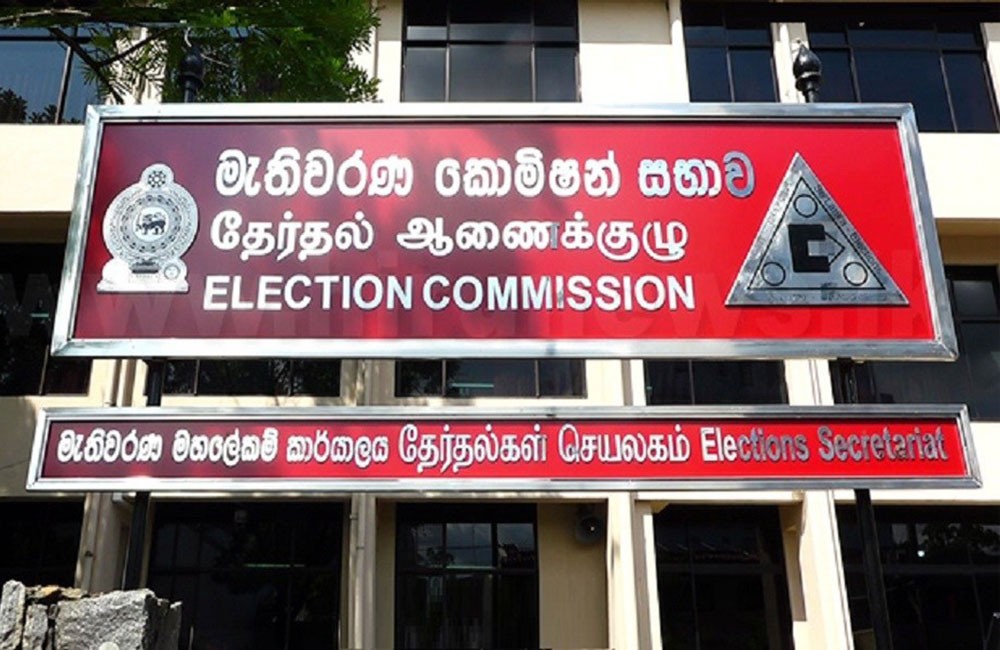
Election Commission opposes political appointments to monitor LG bodies
The Election Commission of Sri Lanka has expressed its discontent towards the recent decision to appoint a representative of the Chairman of the Regional Development Committee to monitor local government institutions.
Accordingly, Chairman of the Commission, Attorney-at-Law Nimal. G. Punchihewa noted that the matter would be brought before the Ministry of Local Government, in writing, tomorrow (05 June).
Explaining their reason for concern, Punchihewa noted that such an appointment could politicise local government institutions given that the Chairman himself is a representative of a particular political party.
Thus, he explained that this would be unfair to those affiliated with other political parties.
Further deeming the appointment an unnecessary one, the Election Commission chairman pointed out that the coordination required within local government institutions can be done through municipal commissioners and divisional secretaries.
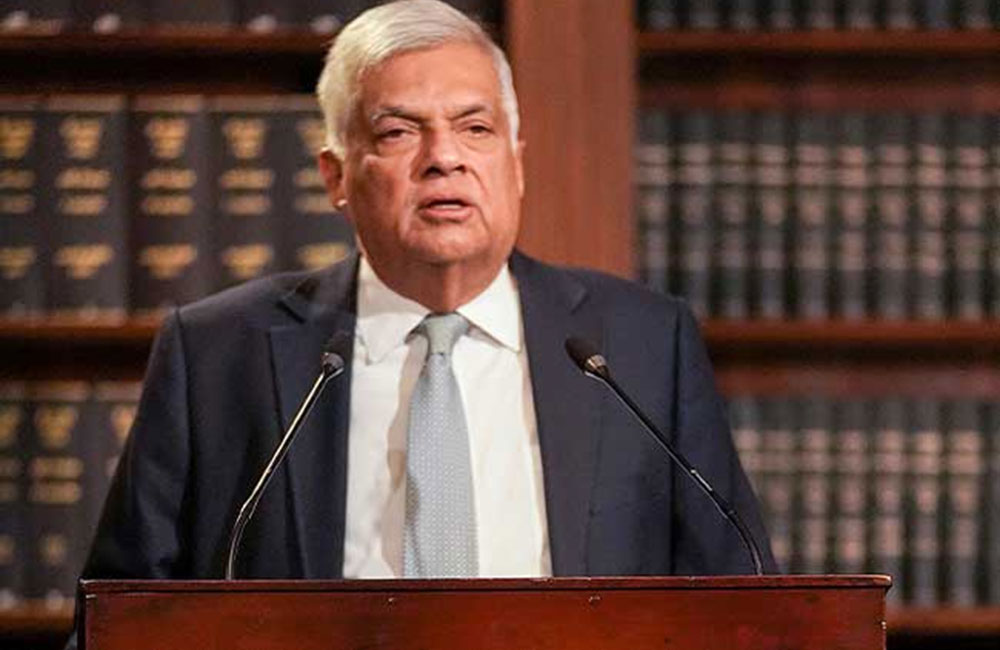
Sri Lanka will be a fully developed country by 2048; economic growth will be based on four pillars - President
President Ranil Wickremesinghe said that nobody will be allowed to drag the country back to the state it was in a year ago.
He said that his government's objective is to transform the country into a fully developed nation on the global stage by 2048, adding that failure to align the country's economy with the modern world & the latest trends in technology, the country will regress
President Wickremesinghe delivered a special statement on the national transformation roadmap on Thursday (1) evening.
Addressing the government's efforts over the past nine months to revive Sri Lanka's economy, the President said the country's economy is gradually recovering from the crisis, thanks to correct policies including the collective efforts of the people.
Outlining the government’s efforts to revive the country’s economy, President Wickremesinghe said these economic reforms will lead to decreased cost of living, improved standards of living, relief for the poor, and a culture of transparency.
President Ranil Wickremesinghe applauded the resilience of all Sri Lankans who navigated through challenging times, driven by their love for the country & said by persisting a little longer on this trajectory, an economically stable future could be achieved devoid of hardships
Sri Lankan President Ranil Wickremesighe said that the country's national transformation roadmap will be based on four pillars to drive economic growth, namely the State Finance and Financial Reforms, Investment Promotion, Social Security Net, and the restructuring of State Owned Enterprises.
The President said the necessary reforms will be introduced to achieve long-term debt sustainability, while also introducing new economic policies that will renew faith on the country's economy.
President Wickremesinghe announced the introduction of the Lab Methodology for effective business proposal implementation. This new system will involve ministers, officials, subject matter experts, & private sector representatives collaborating to address obstacles & facilitate the smooth roll-out of investments & projects by actively engaging the private sector .
President Wickremesinghe said over the years, the Sri Lankan people have made three main demands: combating corruption, protecting the poor & vulnerable sections of society, & ensuring transparency in government actions & practices. He assured that the government is actively working to meet these demands
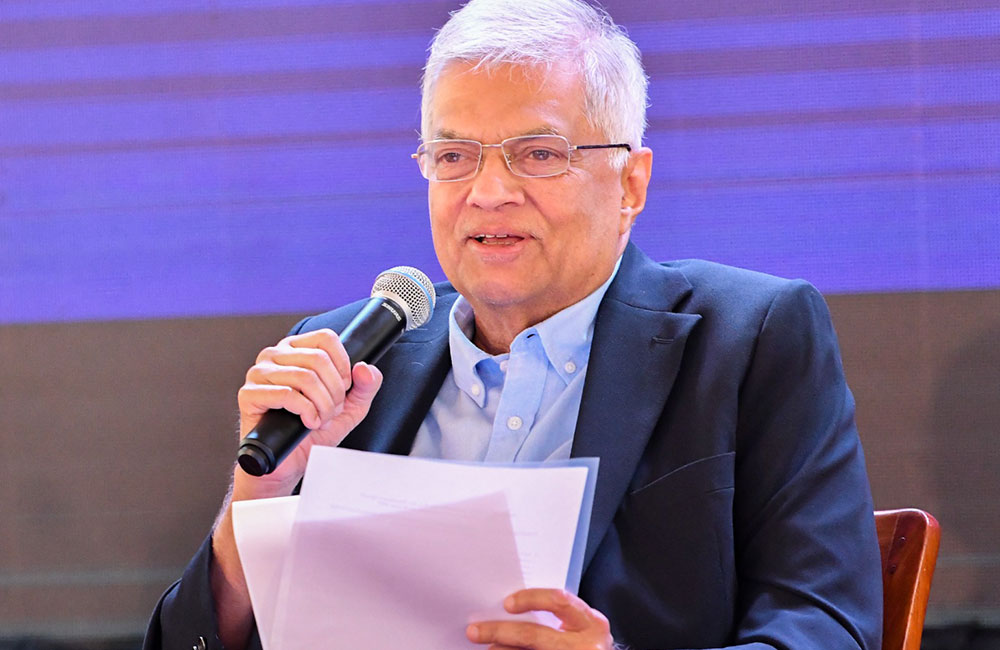
Ease of doing business: President reveals two key areas SL should focus
Addressing the National Law Conference yesterday (03), President Wickremesinghe said that Sri Lanka’s next country assessment on Anti-Money Laundering and Countering the Financing of Terrorism will commence soon.
The assessment, slated to commence soon, holds immense significance as it directly impacts the country’s ease of doing business rating and its ability to attract foreign investments.
In an important development, Sri Lanka has been informed about the impending country assessment on anti-money laundering and countering the financing of terrorism. This assessment holds significant weight as Sri Lanka’s compliance in these areas is crucial for enhancing the ease of doing business rating and attracting foreign investments.
As discussions unfold, it becomes apparent that addressing the identified gaps in the anti-money laundering and counter-terrorism financing framework is of utmost importance. Failure to rectify these gaps poses a potential risk of Sri Lanka once again being labelled as a country with strategic deficiencies. Such a designation could have severe adverse effects on the country’s economic development.
Recognizing the urgency, it is imperative for Sri Lanka to prioritize bridging these gaps, which will also support the governance and anti-corruption framework, ensuring the successful implementation of the International Monetary Fund (IMF) program.
During the discussions, various issues have come to light. One major concern is the bureaucratic hurdles and legal complexities faced by the citizens, resulting in frequent court visits. Participants reflect upon the past, where significant infrastructure projects were accomplished within specified timeframes, even amidst an ongoing war. However, the current administrative structure and an excess of legal professionals hinder the timely completion of projects, demanding a comprehensive review.
To tackle these challenges effectively, a recommendation is made for all stakeholders, including the bench, the bar, the government, and the parliament, to convene and compile a joint report. This collaborative effort would provide a clear roadmap for addressing the backlog and delays caused by legal proceedings. Additionally, it is emphasized that the formulation of a national policy, determined by parliament rather than the cabinet, is essential to resolve various issues and ensure broad agreement on critical subjects.
Following is the speech delivered by President Ranil Wickremesinghe
Well, it’s been a long and fruitful discussion, but I don’t think I should keep you all too long because yesterday, I was given 15 minutes, but I nearly took twice that time. As the representative of the government, along with the three panel members, I will address the issues raised. One of the primary complaints has been the bureaucracy, laws, and the increasing frequency of court visits. Reflecting on my 17 years in government, during the first ten years, we successfully constructed seven large reservoirs in the Mahaveli scheme, as well as Samanala Wewa and Lunugam Vehera outside of it. We also built the Left Bank canals, Right Bank canals, and completed all these projects on time.
During President Jayawardena’s tenure, we established two investment promotion zones and a new capital with a parliament, along with several buildings. During President Pramadasa’s time, we developed two more investment promotion zones, including 200 garment factories. We managed to stay on schedule, with no major overruns, despite the on-going war at that time. However, the current circumstances make it challenging to achieve similar results. Therefore, we need to re-evaluate the entire administrative structure. Regarding the issue of backlog and law delays, which Justice Priyantha Gunawardane emphasized, I propose that all stakeholders, including the bench, bar, government, and parliament, come together to produce a unified report. This would facilitate parliamentary action and allow input from opposition lawyers.
We can all convene and work out the necessary steps within a short period of time. As a representative of the government, I will ensure the involvement of the Secretary and the treasury, depending on the available resources. Adequate funding is essential. Additionally, I recommend that the unofficial bar, official bar, and bench provide a report on other raised concerns. The lack of a national policy contributes to some of these problems. While most governments have neglected the formulation of national policies, our constitution places the responsibility on parliament rather than the cabinet. Therefore, we aim to implement this system and have already established a committee on national policy. Though agreement among all may not be guaranteed, striving for the broadest possible consensus on various subjects is our objective, ensuring their enactment.
Now, addressing the energy issue, we must first focus on unbundling the Ceylon Electricity Board (CEB). Unbundling was advised by the Asian Development Bank in 2003, but later, due to union influence, the government reversed the decision. The unions now insist on unbundling. Had we done it in 2004, we would have avoided the current problem.
The second issue pertains to renewable energy. We have a renewable energy authority under the 13th Amendment and it’s under the Provincial Councils and the other is hydroelectricity. As for the national grid, its definition remains incomplete, allowing for the possibility of parallel grids. Consequently, an energy regulator, specifically an electricity regulator, is necessary to balance the powers of the CEB and the Provincial Councils. We are currently exploring the appropriate regulatory framework and seeking resolutions for the raised concerns, including tariffs. Furthermore, we have initiated a committee on Digital Transformation to drive digitalization in the government. During my tenure as Minister of Industries and Technology, we discussed digitalization in customs, but even after 30 years, progress has been insufficient. The presence of numerous lawyers leads to further complications, with court stays being sought amid on-going processes. To address this problem, we are introducing a new system inspired by the Malaysian model the Lab methodology. This system involves bringing all stakeholders together to discuss and provide a report within six weeks, which the government will then implement. In the Sinhalese language, we refer to this approach as “Sanghayana” where everyone participates, discusses, and returns with recommendations. This methodology aims to resolve government-related issues and streamline procedures in collaboration with the private sector. Lastly, regarding the local firms, we will provide assistance to competitive companies to improve their competitiveness. However, non-competitive local firms cannot expect special treatment. In the past, we focused heavily on the construction sector, providing BOI proposals and tax incentives. Our economy became overly reliant on concrete-related activities. While we support the growth of our construction and real estate firms, we also encourage other companies to come if they meet our standards. A level playing field is essential for development. By looking beyond our borders and adopting a unified policy, we can overcome the challenges we face. I won’t take any more of your time as you have other sessions and a lunch break. I extend my gratitude to all of you, and let’s follow up on these matters. Finally, I want to emphasize that we are preparing for the upcoming country assessment on anti-money laundering and countering the financing of terrorism. Sri Lanka recognizes the importance of addressing the identified gaps, strengthening our governance framework, and ensuring compliance. With the support and cooperation of all stakeholders, we strive for sustainable economic development and international cooperation.
Meanwhile, Mr. Kaushalya Navaratne, President, Bar Association of Sri Lanka addressing the gathering said, “The aim of this conference is to initiate a dialogue between the legal fraternity, policymakers, bureaucrats, and the business community. Recognizing the significance of both entrepreneurship and the rule of law, it is crucial for these sectors to understand each other’s importance for the nation’s prosperity.
To ensure a fruitful discussion, it is essential to involve the political leadership, and we appreciate the dedication of President Wickremesinghe in joining us for this event. The presence of senior judicial officers, policymakers, bureaucrats, lawyers, and corporate leaders will contribute to candid and open discussions.
The focus of the conversation should be on real problems and realities, aiming to find long-lasting solutions. With this in mind, let us commence the conversation and work towards a productive outcome.”
Addressing the gathering, Mr Faiszer Mustapha PC, Chairman NLC said, “Reflecting on the past 75 years since our independence, we acknowledge the initial optimism for Sri Lanka’s growth. However, the devastating impact of war and economic mismanagement has hindered our progress and led us to our current challenges. It is now our duty to rectify past mistakes and confront these obstacles.
We must begin by addressing our debt and engaging in debt restructuring to regain control of our economy. Business as usual is no longer an option; we must forge a new path towards efficient economic growth and sustainable development. This requires a deep understanding of the roles and responsibilities of the legal fraternity, judiciary, entrepreneurs, and guardians of the rule of law.
The business community plays a crucial role in job creation, wealth generation, and innovation. Without a thriving business sector, our nation’s advancement will be compromised. It is essential for the legal fraternity and judiciary to foster trust and collaboration with the business community, while businesses must uphold the rule of law and consider their social responsibilities beyond individual targets.” Supreme Court Justice Priyantha Jayawardena PC said, “The significance of this conference cannot be understated, particularly in light of the unprecedented economic and financial challenges our nation is currently facing. It is our collective responsibility to strive for the betterment of our country and overcome this situation.
The fact that we have gathered here today is a testament to the shared interest we all have in this conference. Throughout the event, we will be focusing on important topics such as improving the ease of doing business, enhancing contract enforcement within a favourable legal framework, and related subjects.
It is crucial to note that Sri Lanka’s current rankings by the World Bank place us at 29th in the ease of doing business index and 164th in enforcing contracts. These rankings significantly influence investment decisions, making it imperative for us to address these parameters for the economic revival of our nation.”
Mr. M. Rajaram, Partner/Chairman, K&L Gates Straits Law LLC (Singapore); “Investors perceive Sri Lanka as an increasingly attractive destination for investments, as acknowledged in discussions held in Singapore, India, the UK, and the US. However, investors seek certain assurances and a level of comfort when considering investment opportunities. When disputes arise, investors prioritize two key factors: certainty of outcome and a fast resolution.
Drawing from Singapore’s experience, specialized judges and a case management system have been established to address different types of issues, aiming to resolve cases within 15 months in most instances. Additionally, modernization efforts, such as paperless filings and electronic hearings, have been implemented in Singaporean courts.
Despite being a small nation with limited natural resources and a smaller population compared to Sri Lanka, Singapore has successfully embraced these measures. Therefore, the suggestion is made to consider modernizing Sri Lanka’s court system using artificial intelligence (AI) and implementing strict case management controls.”
President’s Counsel Dr. K Kanag-Isvaran, President’s Counsel Dr. Faiz Mustapha, Central Bank Governor Dr. Nandalal Weerasinghe, Finance Ministry Secretary Mahinda Siriwardena, President’s Senior Adviser on Economic Affairs Dr. R.H. Samaratunga, attended the conference as panelists while President’s Counsel Mr. Chandaka Jayasundere moderated the panel discussion.
Attorney General Sanjay Rajaratnam, Mr. Ronald Perera PC, Chairman, Bank of Ceylon, Chairman, Sri Lanka, Insurance Corporation Mr. Thulci Aluwihare, Deputy Managing Director, CHEC Port City Colombo(Pvt) Ltd, Mrs. Nadeeja Tambiah, President- Head of Legal and Secretarial- John Keells Holdings, Mr. Mohamed Azmeer, CEO, Amana Bank PLC, Mr. Premalal Brahmanage, Chairman, Prime Group, Mr. Nirmal Cooke, Group Director Capital Maharaja Organization, Mr. Vinod Hirdaramani, Chairman, Hirdaramani Group, Mr. Asgi Akbarally, Executive Director, Akbar Brothers Group, Mr. Dipak Das, Managing Director, Lanka IOC PLC, Mr. Imal Fonseka, Chief Executive Officer, Richardson Group, Mr. Janaka Abeysinghe, Chief Executive Officer, Sri Lanka Telecom, Mr.Thushan Meemanage, Director, Scope Cinemas (Pvt) Limited and a distinguished group of Supreme Court judges and lawyers attended this event.

SL-Vlog’s owner remanded until June 07
The arrested owner of the YouTube channel SL-Vlogs has been remanded until June 07.
Bruno Divakara was taken into custody by the Criminal Investigation Department yesterday (31) after being questioned for over eight hours.
He was produced before Colombo Fort magistrate Thilina Gamage today.
Divakara has been accused of releasing a video containing controversial comments against Buddhism by stand-up comedian Nathasha Edirisooriya.
She is also under arrest.
A few days ago, Divakara told the media that responsibility of any statement should be borne by the maker of the statement.
Page 245 of 660